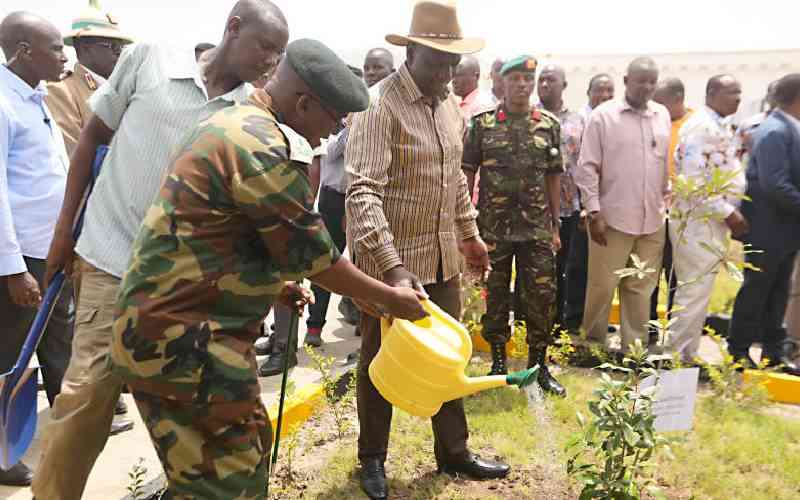×
The Standard e-Paper
Join Thousands Daily

As President William Ruto launched the Forestry and Land Restoration Acceleration programme dubbed Jaza Miti, which targets planting 15 billion trees in 10 years, I wondered what feedback the environment would give.
Maybe it would say: "Thank you Mr President for choosing to give back to the society down here, which has been traumatised due to human actions such as deforestation and pollution. I know you know you are not doing us a favour but doing what must be done."